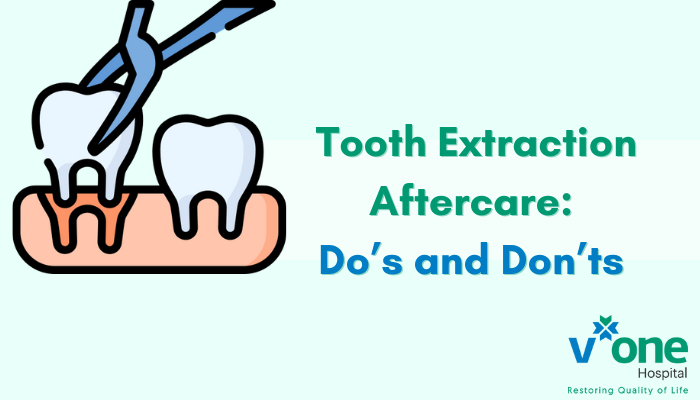Tooth Extraction Aftercare: Do’s and Don’ts You Must Follow
Tooth extraction is a common dental procedure recommended for various reasons such as severe tooth decay, infection, impacted wisdom teeth, or overcrowding. While the procedure itself is usually quick and painless (thanks to anesthesia and modern dental techniques), the real challenge lies in the healing process afterward.
Proper aftercare is extremely important to ensure smooth recovery and to prevent complications such as infection, excessive bleeding, or a painful condition known as dry socket. In this blog, we’ll cover the essential do’s and don’ts of tooth extraction aftercare to help you heal faster and more comfortably.
If you’re planning a tooth extraction, consulting the best dentist in Indore can make all the difference, as they not only perform the procedure safely but also guide you with personalized recovery instructions.
Dos After Tooth Extraction
1. Follow Your Dentist’s Instructions
The most important step is to carefully follow the aftercare advice given by your dentist. This may include medication schedules, activity restrictions, and oral hygiene tips. Every patient heals differently, and your dentist’s instructions are tailored to your specific case.
2. Control Bleeding with Gauze
After extraction, your dentist will place a piece of gauze over the site to control bleeding. Bite down gently on the gauze for 30–45 minutes. If bleeding continues, replace it with a fresh piece. This helps a blood clot form, which is vital for healing.
3. Apply an Ice Pack
Mild swelling around the extraction site is common. Applying an ice pack to your cheek for 10–15 minutes at a time can reduce swelling and numb discomfort. Use ice packs in intervals during the first 24 hours.
4. Eat Soft Foods
For the first couple of days, stick to soft foods like yogurt, soup, mashed potatoes, smoothies, and scrambled eggs. This prevents unnecessary strain on the extraction site and avoids dislodging the blood clot.
5. Stay Hydrated
Drink plenty of water, as hydration supports healing. Avoid using straws, since the suction can disturb the clot and delay recovery.
6. Rest Well
Your body heals faster when you give it proper rest. Limit strenuous physical activity, heavy lifting, or workouts for at least 24–48 hours after the procedure.
Don’ts After Tooth Extraction
1. Don’t Smoke or Consume Alcohol
Smoking and alcohol can interfere with clot formation and delay healing. They also increase the risk of infection and dry socket. Avoid these completely for at least a week after extraction.
2. Don’t Touch the Extraction Site
Avoid poking the site with your tongue, fingers, or any objects. This can disturb the healing process and introduce bacteria, leading to infection.
3. Don’t Eat Hard, Spicy, or Crunchy Foods
Chips, nuts, popcorn, or spicy dishes can irritate the wound and may even get stuck in the socket. Stick to soft, bland foods until your dentist advises otherwise.
4. Don’t Rinse Immediately
It may be tempting to rinse your mouth to feel fresh, but avoid it for the first 24 hours. Rinsing too soon can dislodge the blood clot. After a day, gently rinse with warm salt water to keep the area clean.
5. Don’t Overexert Yourself
Physical strain increases blood pressure and may cause bleeding at the extraction site. Resume normal activity slowly and only after getting your dentist’s approval.
Signs You Should Call Your Dentist
While mild discomfort and slight bleeding are normal, contact your dentist if you notice any of the following:
- Severe pain that doesn’t improve with medication
- Persistent heavy bleeding
- Swelling that worsens after 2–3 days
- Pus or foul taste in your mouth
- Fever or chills
These could be signs of infection or other complications that need immediate attention.
Role of the Best Dentist in Indore in Aftercare
The recovery process after a tooth extraction isn’t just about what you do at home—it also depends on the skill and expertise of your dentist. The best dentist in Indore will not only ensure a safe and painless extraction but also provide detailed aftercare guidance, prescribe necessary medications, and schedule follow-ups to monitor healing.
If complications arise, having an experienced dentist by your side ensures that they are managed quickly and effectively. This level of care can make your recovery smoother and give you peace of mind.
Long-Term Oral Care After Tooth Extraction
Once your socket has healed, it’s important to maintain good oral hygiene to prevent future dental problems. Here are some long-term care tips:
- Brush and floss regularly to avoid plaque buildup.
- Visit your dentist every 6 months for routine checkups.
- Maintain a balanced diet rich in calcium and vitamin D for stronger teeth.
- Address other dental concerns promptly instead of delaying treatment.
Conclusion
Tooth extraction is a common dental procedure, but the healing process requires your active care and attention. By following the do’s and avoiding the don’ts, you can minimize discomfort, prevent complications, and ensure a smooth recovery.
If you’re preparing for an extraction, don’t compromise on your oral health. Choose the best dentist in Indore for expert treatment, personalized care, and professional guidance throughout your recovery journey.
Your smile deserves the right care—and with the right aftercare, you’ll be back to normal in no time!

